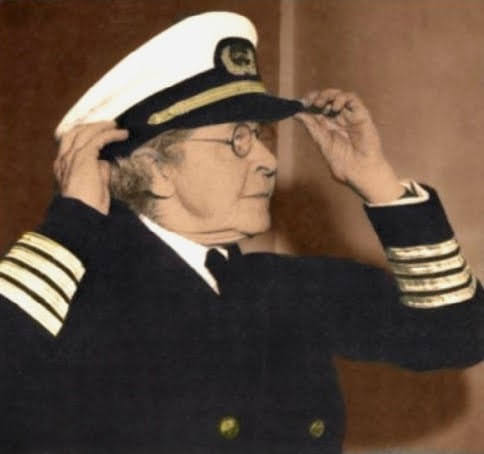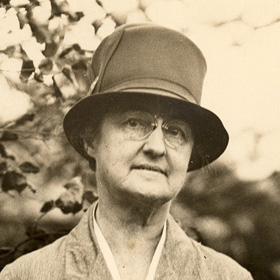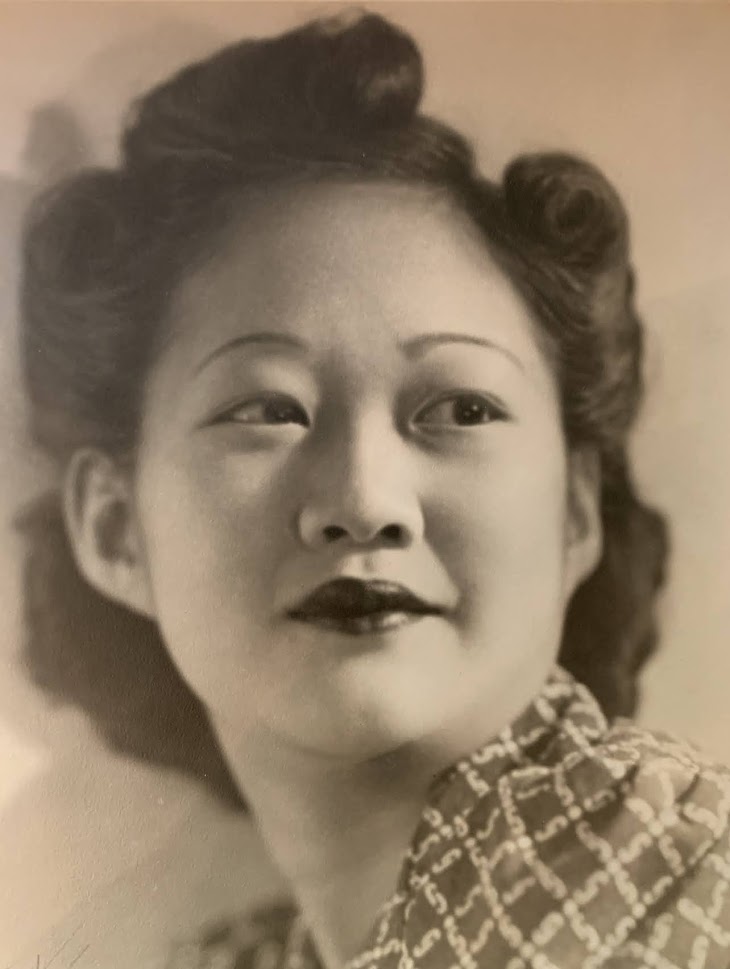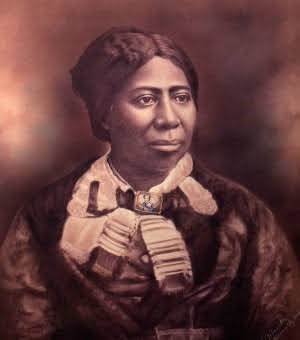In 1917, Belmira Nunes (1899-1994) graduated as valedictorian and only Cape Verdean girl from Wareham High School. She attended Radcliffe College where she became the first Cape Verdean woman graduate. Belmira had a distinguished teaching career in the New York City School system.
Racism and domestic abuse did not deter Cape Verdean American Belmira Nunes (1899-1994) from achieving her goals as a student and educator in Wareham and beyond. Her father Luis Nunes was born in Fogo, Cape Verde and was a whaleman before moving to the United States at the end of the nineteenth century. In 1892, her mother Maria Neves Leitao left the island of Brava, Cape Verde and arrived in Providence, Rhode Island. Luis and Maria married soon after and eventually moved to Wareham, where they worked in the cranberry bogs, picked strawberries and blueberries, and chopped ice in the winter.
Belmira was born in Harwich, MA on March 7, 1899. The Crioulo language was spoken at home and each night Belmira’s mother would tell her children Cape Verdean folktales, part of the rich oral tradition of Cape Verdean culture. As a first generation Cape Verdean American, Belmira had a deep appreciation for the language and culture of her parents’ homeland. She excelled in school from elementary level onward and received several double promotions. In 1917, Belmira graduated as valedictorian from Wareham High School, where she was the only Cape Verdean girl in the school. In her valedictory address entitled “The Ideal Town,” Belmira stated that an ideal town would have, among other things, no prejudice.
In her 1982 autobiography A Portuguese Colonial in America, Belmira recalls how the Cape Verdean community in Onset was called derogatory names, how no one sat with her at lunch, how she was not allowed to go on certain field trips. She was not offered a position teaching Spanish at Wareham High School in spite of a degree from Radcliffe College and a glowing recommendation from the Romance Language Department head at Harvard. Belmira gratefully acknowledges other Wareham residents, the minister of the Methodist Church and her elementary teacher Miss Churbuck, who paid her tuition to Boston University, where she did so well that she was accepted to Radcliffe College. She graduated from Radcliffe with honors in 1924 as the first Cape Verdean woman graduate, with a degree in Romance Languages.
While a student at Boston University, Belmira met and married Anselmo Krigger, the first Black man to graduate from MIT as a civil engineer. In this relationship, described by Belmira as “absolute torture,” Anselmo physically and psychologically abused her in his attempts to control, by name calling, pinching, dragging, sleep deprivation and threats to her life. After two years, Belmira was able to free herself from this oppression and divorced him. She accepted a teaching position in Puerto Rico in 1924 and remained there for six years.
When Belmira returned from Puerto Rico in 1930, she took a position teaching Spanish and French at the Highland Manor School and Junior College, a private girls school in Tarrytown, New York. She earned a master’s degree in education by 1933 from New York University. Belmira next briefly taught in the segregated school system of Washington, D.C. at the Cardozo Business High School. She soon returned to New York, passed the qualifying exam for high school teachers, and began a long and impactful career in the New York City school system.
In the New York City schools, Belmira gained a reputation as a brilliant educator who was able to make meaningful connections with her students. She began teaching on Staten Island at Port Richmond High School, where she remained for four years. In 1938, Belmira transferred to James Monroe High School, the largest high school in New York City, with 10,000 students. There she taught business and wrote many articles for the Journal of Business Education. She became a business department head at New York City’s High School of Commerce, where she worked closely with a growing population of Puerto Rican students. After over 30 years of teaching, Belmira retired from the New York City public schools in 1960.
While teaching in New York City, Belmira along with other Cape Verdeans, formed the Association for Cape Verdean Improvement and raised about $30,000 for the drought-stricken Cape Verde Islands. Later in her retirement in Providence RI, she was one of the founders of the Cape Verdean American Foundation, a group committed to making Cape Verdeans better known among Americans. In 1960, New Bedford’s Cape Verdean American Veterans Association honored Belmira as the outstanding Cape Verdean of the Year. When Belmira accepted the award at the Veterans Hall in New Bedford, she spoke to the Cape Verdean community about her experiences and struggles. Belmira commented in her speech, “After all, my having been rejected as a teacher in Wareham High School gave me the opportunity to reach far greater heights than I might have reached had I stayed in New England. It was my advice to the people there listening to me who were either in college, planning to go to college, or who had children they wanted to go to college, not to be discouraged, and to do everything in their power to help further their education. . . .”
During her retirement, Belmira continued to teach at the college level in Puerto Rico and in secondary schools in Rhode Island. She taught English as a second language at the Catholic University of Puerto Rico and the University of Puerto Rico. In Rhode Island, she taught at Hope High School in Providence and Bay View Academy in East Providence. In 1974, to celebrate 50 years of teaching and the 50th anniversary of her graduation from Radcliffe College, Belmira was honored at a testimonial at Seekonk’s Hearthstone Inn, with many former students in attendance. She was awarded an honorary degree of doctor of pedagogy from Rhode Island College in 1975.
Belmira died on March 29, 1994. Throughout her life, she fought her own personal battle with racial identity while experiencing both racism from some and unwavering support of others. In the end, no obstacles held her back as she worked for equality and recognition for herself and others.
Ann O’Leary, Emily Bourne Research Fellow
Information from
- Lopes, Belmira Nunes. A Portuguese Colonial in America: Belmira Nunes Lopes. Latin American Literary Review Press, 1982.
![[Belmira Nunes], c. 20th century, Photograph, Courtesy of Ron Barboza Photograph of Belmira Nunes - head of woman in sepia tones. Woman is looking angled towards her right, is wearing glasses, a necklace, and dark lipstick.](https://historicwomensouthcoast.org/wp-content/uploads/2019/06/Belmira-Nunes_croppedv2.jpg)




